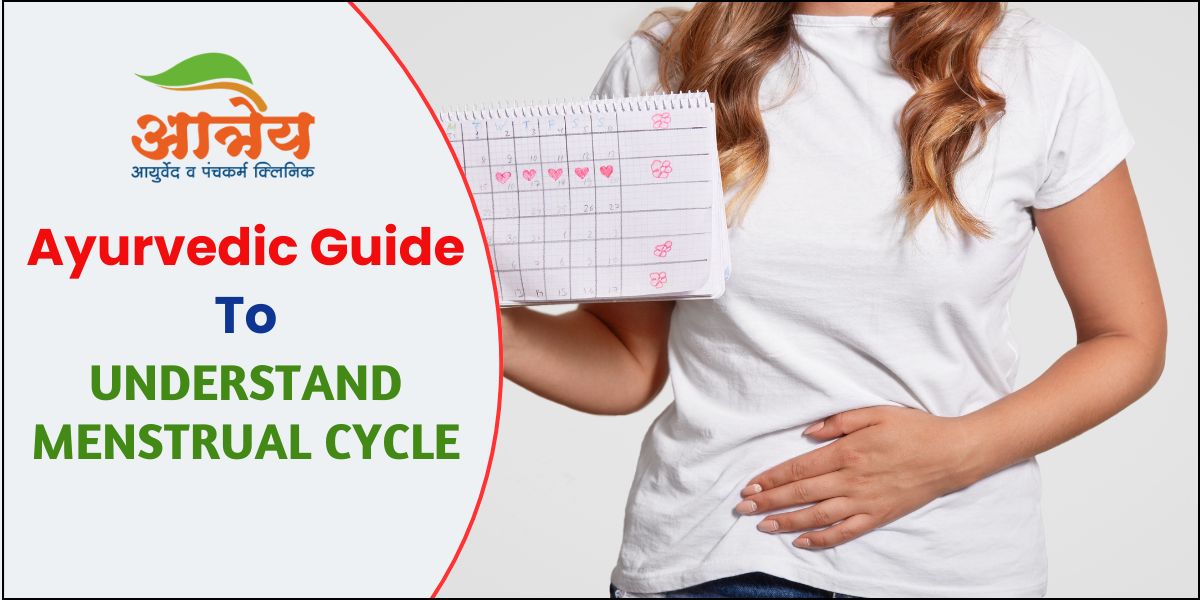The menstrual cycle is an essential aspect of a woman’s health and well-being. Ayurveda, the ancient science of life, offers a unique perspective on menstruation, emphasizing balance, natural rhythms, and holistic care. By understanding the menstrual cycle through Ayurvedic principles, women can cultivate a deeper connection with their bodies and promote overall health.
Phases of the Menstrual Cycle in Ayurveda
Ayurveda recognizes the menstrual cycle as a reflection of the three doshas: Vata, Pitta, and Kapha. These doshas influence different phases of the cycle:
– Kapha Phase (Pre-Ovulation)
- Duration: From the end of menstruation to ovulation.
- Characteristics: This is a phase of growth and rejuvenation as the uterine lining builds up. The Kapha dosha, associated with lubrication and nourishment, predominates.
- Ayurvedic Tips:
– Follow a light and energizing diet to balance Kapha.
– Engage in moderate physical activity like yoga or brisk walking.
– Pitta Phase (Ovulation)
- Duration: Around the middle of the cycle.
- Characteristics: Ovulation occurs, and Pitta dosha, associated with heat, transformation, and metabolism, becomes dominant.
- Ayurvedic Tips:
– Stay hydrated and include cooling foods like cucumber, coconut water, and leafy greens.
– Avoid spicy and overly acidic foods to prevent Pitta imbalance.
– Vata Phase (Post-Ovulation and Menstruation)
- Duration: From post-ovulation to the end of the menstrual period.
- Characteristics: Vata, responsible for movement and elimination, governs this phase. It influences the shedding of the uterine lining during menstruation.
- Ayurvedic Tips:
– Focus on grounding practices, such as meditation and warm oil massages.
– Consume warm, nourishing foods like soups, stews, and herbal teas.
– Avoid excessive physical or mental exertion.
Ayurvedic Perspective on Menstruation
In Ayurveda, menstruation is seen as a natural detoxification process. The menstrual blood, or “Artava,” reflects the health of the Rasa (nutrient plasma) and Rakta (blood) dhatus (tissues). A healthy cycle is a sign of balanced doshas and a well-functioning reproductive system.
Key Indicators of a Balanced Cycle:
- Regular cycle length (typically 28-32 days).
- Moderate flow without clots.
- Minimal discomfort or pain.
Common Menstrual Imbalances and Ayurvedic Remedies
– Irregular Periods
- Cause: Vata imbalance.
- Remedies:
– Regularize sleep patterns and avoid stress.
– Include sesame oil massages and herbal teas like ginger or cinnamon.
– Heavy Bleeding (Menorrhagia)
- Cause: Pitta imbalance.
- Remedies:
– Avoid spicy and acidic foods.
– You can use cooling herbs like Shatavari and Aloe Vera.
– Painful Periods (Dysmenorrhea)
- Cause: Vata imbalance.
- Remedies:
– Apply warm compresses to the lower abdomen.
– Drink warm beverages infused with fennel or ajwain.
– Premenstrual Syndrome (PMS)
- Cause: Vata and Pitta imbalances.
- Remedies:
– Practice calming activities like yoga or pranayama.
– One can take Ashwagandha or Brahmi to reduce stress and anxiety.
Dietary Guidelines for a Healthy Menstrual Cycle
- Kapha Phase: Opt for light, dry, and warm foods like steamed vegetables, lentils, and spices like ginger.
- Pitta Phase: Favor cooling, hydrating foods like cucumber, watermelon, and fennel.
- Vata Phase: Prioritize warm, nourishing meals like kichadi, soups, and ghee.
Lifestyle Practices to Support Menstrual Health
- Dinacharya (Daily Routine): Following a consistent daily schedule helps balance the doshas.
- Abhyanga (Oil Massage): Regular self-massage with sesame or coconut oil calms the mind and supports circulation.
- Yoga and Pranayama: Gentle asanas like Child’s Pose and pranayama techniques like Anulom Vilom are beneficial.
- Stress Management: Practices like meditation and journaling can reduce hormonal imbalances caused by stress.
FAQs on Menstrual Health and Ayurveda
Q1: How can Ayurveda help with painful periods?
- Ayurveda focuses on balancing Vata dosha through warm oil massages, herbal teas, and calming activities.
Q2: What herbs are best for menstrual health?
- Shatavari, Ashwagandha, and Aloe Vera are commonly recommended for menstrual regulation and overall health (Do not consume without Doctors consultation)
Q3: Can an Ayurvedic diet help with irregular cycles?
- Yes, following a Vata-pacifying diet can be highly effective for irregular periods.
The menstrual cycle is a powerful indicator of a woman’s overall health. By understanding its phases and aligning with Ayurvedic principles, women can experience harmony, vitality, and balance throughout their cycle. Ayurveda empowers women to embrace their natural rhythms and prioritize self-care, leading to a healthier and more fulfilling life.
Visit Aatreya Ayurved & Panchakarma Clinic For the Best Ayurvedic Treatment in Pune.
Aatreya Ayurved & Panchakarma Clinic in Hadapsar, Pune provides authentic Ayurvedic treatments to restore health and balance naturally. Specializing in Panchakarma, menstrual health, detox therapy, and chronic disease management. Whether you are struggling with irregular periods, stress, or digestive issues, Aatreya Ayurved Clinic helps you heal holistically. Visit us for expert care and experience the benefits of Ayurveda for a healthier life.







